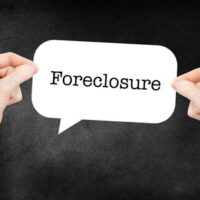Florida Foreclosure, Part Three: After Foreclosure

You have been through the pre-foreclosure and foreclosure process. At this point you likely want to wash your hands of the entire event and move on with your next chapter. However, even after the foreclosure sale is held, there are still a few key items – such as deficiency judgements and redemption periods – which you should be aware of. Even after the foreclosure sale is held, people whose homes have been foreclosed on may still have options – or further debts to manage.
Deficiency Judgments After a Florida Foreclosure
As discussed in part two of our foreclosure series, a home put into foreclosure will generally be sold in a foreclosure sale/auction. The purpose of the sale is to help the lender recoup the outstanding debt on the foreclosed property. However, it stands to reason that sometimes the foreclosed property does not sell for a large enough amount to cover the debt owed by the previous owner.
A property may sell for less than the amount owed by the previous owner for a number of reasons. If the home was abandoned or vandalized, for instance, the amount it sells for may be vastly different from the amount the prior owner paid when buying the property untarnished and new. Discrepancies in foreclosure sale price vs mortgage owed could also come from the prior owner taking out loans against the home, such as second mortgages, that were not fully repaid. Changes in the market can also be volatile. If an owner purchased a home at a high interest rate at the peak of the local real estate market,
However the discrepancy between the sale price occurs, when a foreclosure sale does not recoup all of the money necessary to pay off the full amount the previous owner owed, the difference between the sale price and the debt is a “deficiency balance.” In Florida, lenders are permitted to pursue a personal judgment, or deficiency judgment. These judgements can require prior owners to repay some or all of this deficiency.
Redemption Period After Foreclosure Sale
It is important to understand that if your home was sold at a foreclosure auction/sale, you / the mortgage holder can redeem the home by paying the amount owed to the lender, even after the foreclosure sale is held, at either:
- A date prior to the court clerk filing the certificate of sale, or
- A time specifically called out in the foreclosure judgment
This means that the foreclosure sale itself does not need to be the end of the story. But the loan amount does need to be repaid before the later of the above specified periods.
After the Foreclosure Sale
After the foreclosure sale is held and the certificate of title is filed with the court, the new owner (usually the prior lender) can file a motion for a “writ of possession.” Once the court issues this writ, the sheriff will execute it. Essentially this means that if you do not vacate the property, the Sheriff has the authority to force you to leave.
Contact Suncoast Civil Law
Foreclosure should not be taken lightly. The experienced Sarasota foreclosure defense lawyers at Suncoast Civil Law can help you navigate through the steps ahead. Contact our office today to see how our team can go to work for you.
Sources:
flsenate.gov/laws/statutes/2011/45.0315
nbcnews.com/business/economy/home-foreclosures-rising-in-us-where-which-states-rcna88394
